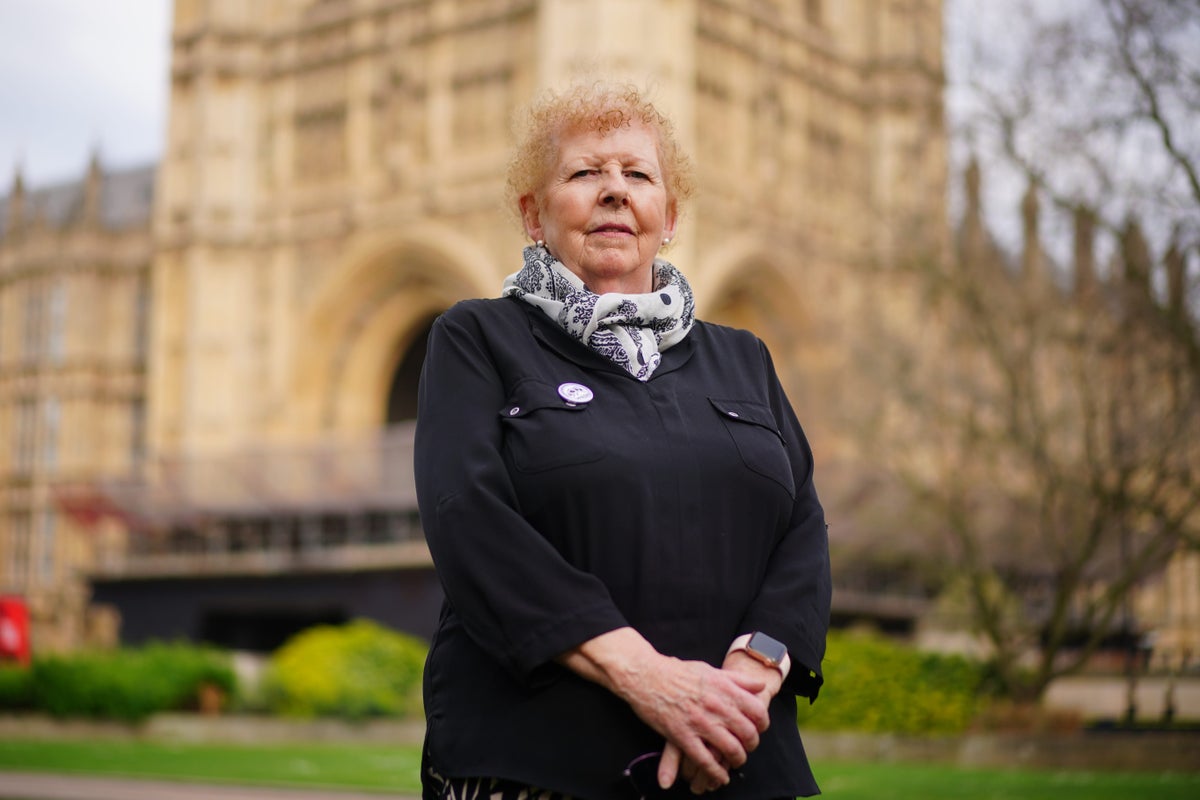
The Government is being pressed by MPs to bring proposals forward before the summer recess to provide compensation for women affected by failures to communicate increases in the state pension age.
In a report published in March, the Parliamentary and Health Service Ombudsman (PHSO) asked Parliament to identify how to provide an appropriate remedy for those who have suffered injustice because of maladministration on the part of the Department for Work and Pensions (DWP).
Sir Stephen Timms, chairman of the Work and Pensions Committee, has written to Work and Pensions Secretary Mel Stride, following a committee session last week with campaigners from Women Against State Pension Inequality (Waspi) and the PSHO.
The letter says: “As you are aware, the PHSO laid its report before Parliament on March 21 2024, asking Parliament to ‘identify an appropriate mechanism for providing remedy” for women born in the 1950s who have suffered injustice because of DWP’s maladministration in its communication of increases in their state pension age (SPA) legislated for in the Pensions Act 1995.
“In a one-off evidence session on the issue on May 7, we were reminded of the need for urgent action, given that the ombudsman started to look at this issue in 2018 and that every 13 minutes a women born in the 1950s dies.”
The debate over the impact of the DWP’s failure to communicate increases in the women’s state pension age has dragged on for too long and it is time the Government took action to resolve the issue— Sir Stephen Timms, Work and Pensions Committee
The letter continued: “The evidence we received indicated support for a rules-based system. This would be a system where payments would be adjusted within a range (based on the PHSO’s severity of injustice scale) to reflect the extent of change in the individual’s state pension age and the notice of the change which the individual received.
“This would mean that the less notice you had of the change and the bigger the change in your SPA, the higher the payment you would receive.
“While not perfect, the advantages of such a system are that it would be: quick to administer; applying known data to a formula to determine the amount due; and relatively inexpensive.”
The letter also urged some flexibility for people to make the case individually, after they have received the payment using the rules-based system, that they experienced direct financial loss and that they are due a higher level of compensation.
The letter highlighted evidence from Angela Madden, chairwoman of the Waspi campaign.
She previously told the committee that women’s divorce settlements had been based on a pension age of 60, meaning they had been awarded less money.
The letter added: “Implementing a remedy will need parliamentary time, financial resources, and the data and technical systems only available to your department.
“It cannot happen without Government support. We would ask you to bring forward proposals for a remedy by the summer recess.”
The ombudsman’s report suggested that compensation at level four, ranging between £1,000 and £2,950, could be appropriate for each of those affected.
It is now time for the Government to act and give the Commons as a whole its say— Angela Madden, Waspi
Speaking in the House of Commons in March, Mr Stride said there will be a full and proper consideration of the ombudsman’s report.
He said: “When considering the DWP’s actions between August 2005 and December 2007, the ombudsman came to the view that those actions resulted in 1950s-born women receiving individual notice later than they might, had different decisions been made.”
Speaking about the letter, Sir Stephen said: “The debate over the impact of the DWP’s failure to communicate increases in the women’s state pension age has dragged on for too long and it is time the Government took action to resolve the issue.
“There is no perfect solution, but there would seem to be broad support for a rules-based system of compensation with a degree of flexibility for cases where women have experienced direct financial loss.
“While the ombudsman has put the matter in the hands of Parliament, a remedy can only happen with the support of the Government and we hope ministers will move quickly to bring forward its proposal before the summer.”
Commenting on the committee’s actions, Ms Madden said: “Parliament’s top pensions thinkers have spoken. It is now time for the Government to act and give the Commons as a whole its say.
“The committee is right to suggest there must be additional compensation for those many hundreds of thousands who suffered direct financial loss in addition to a fixed sum for all those affected by successive governments’ failures.
“After years of campaigning, both the independent ombudsman and now a cross-party group of senior MPs have vindicated our position.
“For ministers to leave setting up a compensation scheme a moment longer is just delaying the inevitable and insulting our generation of women afresh.”
A DWP spokesperson said: “We are considering the Ombudsman’s report and will respond in due course, having cooperated fully throughout this investigation.
“The government has always been committed to supporting all pensioners in a sustainable way that gives them a dignified retirement whilst also being fair to them and taxpayers.
“The State Pension is the foundation of income in retirement and will remain so as we delivered a further 8.5% rise last month, increasing the state pension for 12 million pensioners. This has seen the full rate of the new State Pension rise by £900.”







